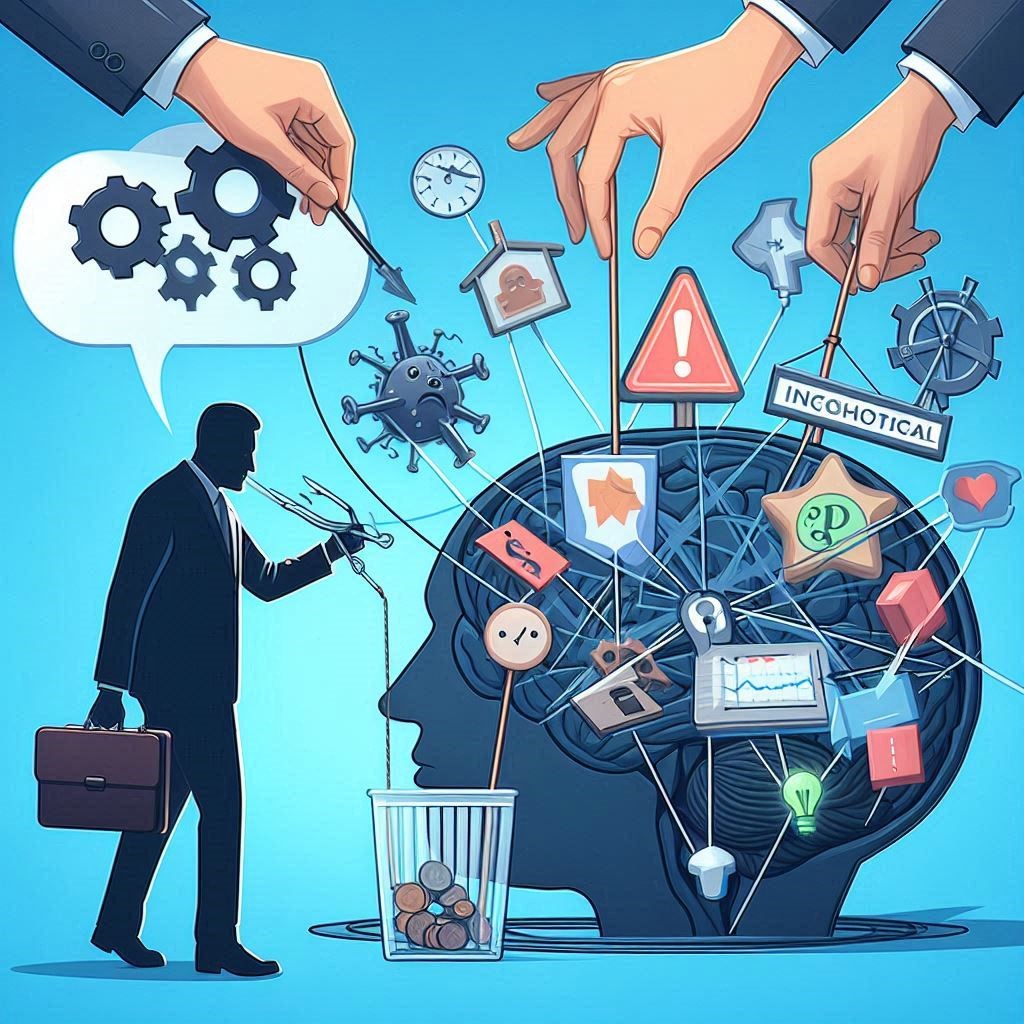In our daily lives, we often fall prey to various psychological traps that affect our decisions and behaviors. Understanding these traps can help us make more informed choices.
The Ostrich Effect
The ostrich effect occurs when people avoid negative information by pretending it doesn’t exist, similar to how an ostrich buries its head in the sand.
Example:
- Investors might avoid checking their declining portfolio during a market downturn.
How to Overcome:
- Stay informed about all aspects of your investments.
- Regularly review financial statements.

The Spotlight Effect
The spotlight effect is the tendency to overestimate how much others notice and judge our actions.
Example:
- Feeling self-conscious about a small stain on your shirt.
Reality Check:
- People are generally more focused on their own lives than on ours.
Tips:
- Remind yourself that others are likely not paying as much attention as you think.
- Focus on the present moment rather than worrying about others’ perceptions.
The Halo Effect
The halo effect happens when our overall impression of a person influences our feelings about their specific traits.
Example:
- Assuming a person who is attractive is also kind and intelligent.
Impact:
- Can lead to biased judgments in hiring, promotions, and daily interactions.
Mitigation:
- Evaluate individuals based on specific criteria and evidence.
- Be aware of your initial impressions and question them.

The Anchoring Effect
The anchoring effect occurs when individuals rely too heavily on an initial piece of information when making decisions.
Example:
- Pricing negotiations where the first number presented sets the tone.
How to Avoid:
- Research and prepare before entering negotiations.
- Be aware of the anchor and adjust your perspective accordingly.
Tips:
- Consider multiple sources of information.
- Delay judgment until you have all the necessary data.
The End of History Illusion
The end of history illusion is the belief that we have experienced significant personal growth up to the present but will change little in the future.
Example:
- Underestimating how much your preferences will change over the next decade.
Consequence:
- Affects long-term planning and goal setting.
How to Combat:
- Reflect on how much you’ve changed in the past.
- Stay open to future growth and changes.
Conclusion
Understanding these psychological traps is the first step towards mitigating their impact on our lives. By staying informed and aware, we can make better, more rational decisions.
Further Reading:
Related Articles:
By recognizing and addressing these biases, we can navigate our decisions with greater clarity and confidence.



People are generally more focused on their own lives than on ours😰😰. true